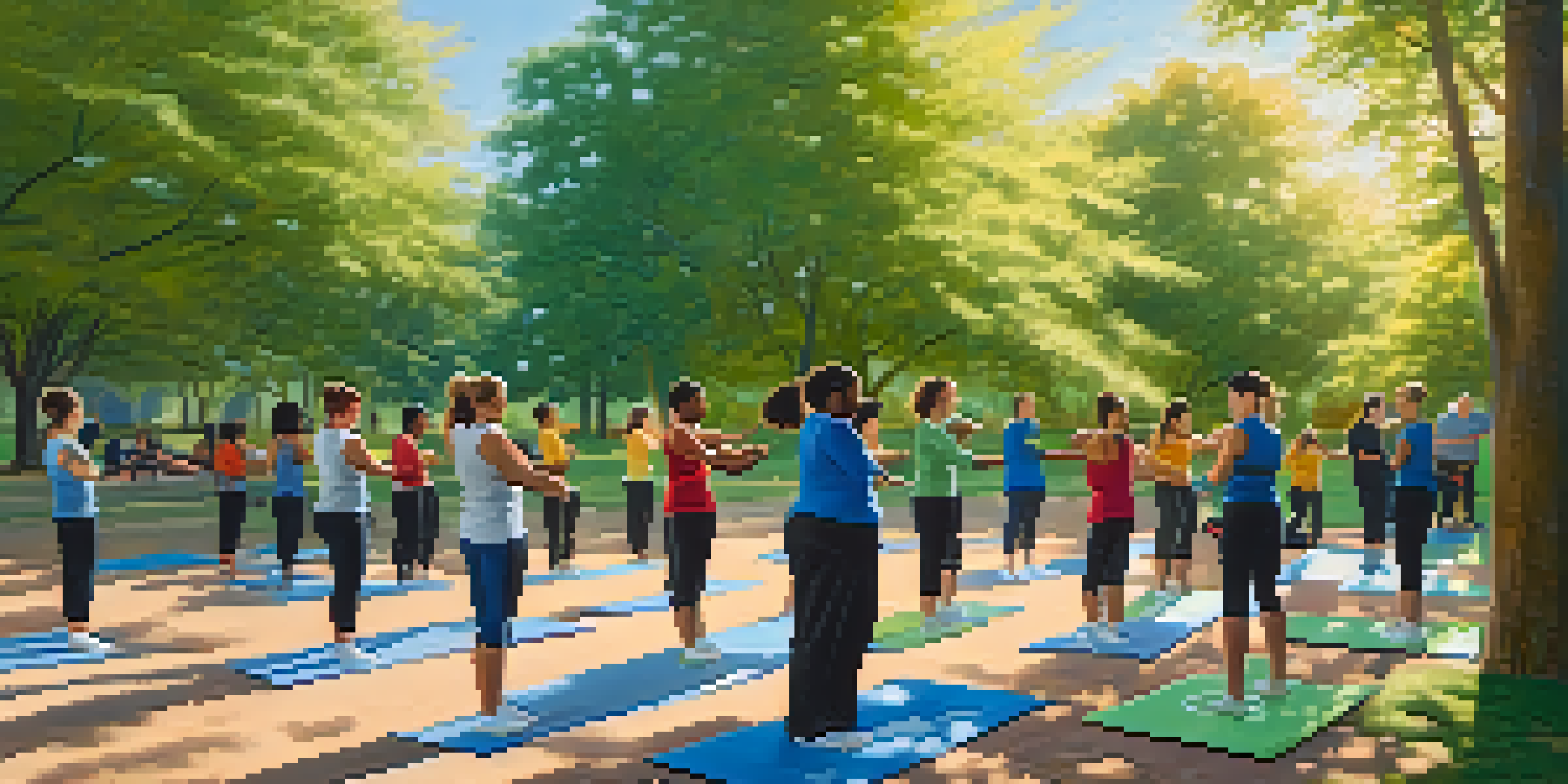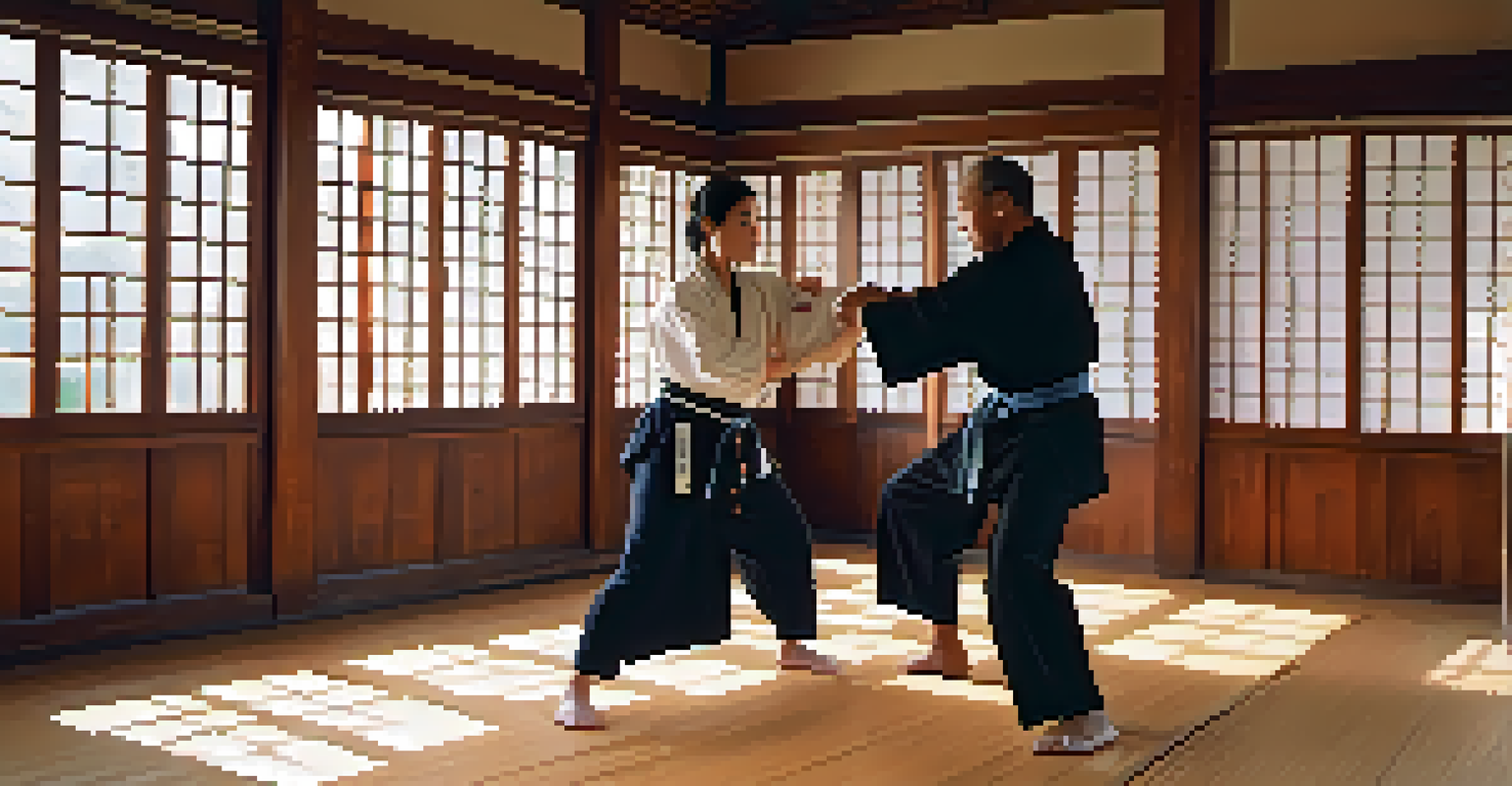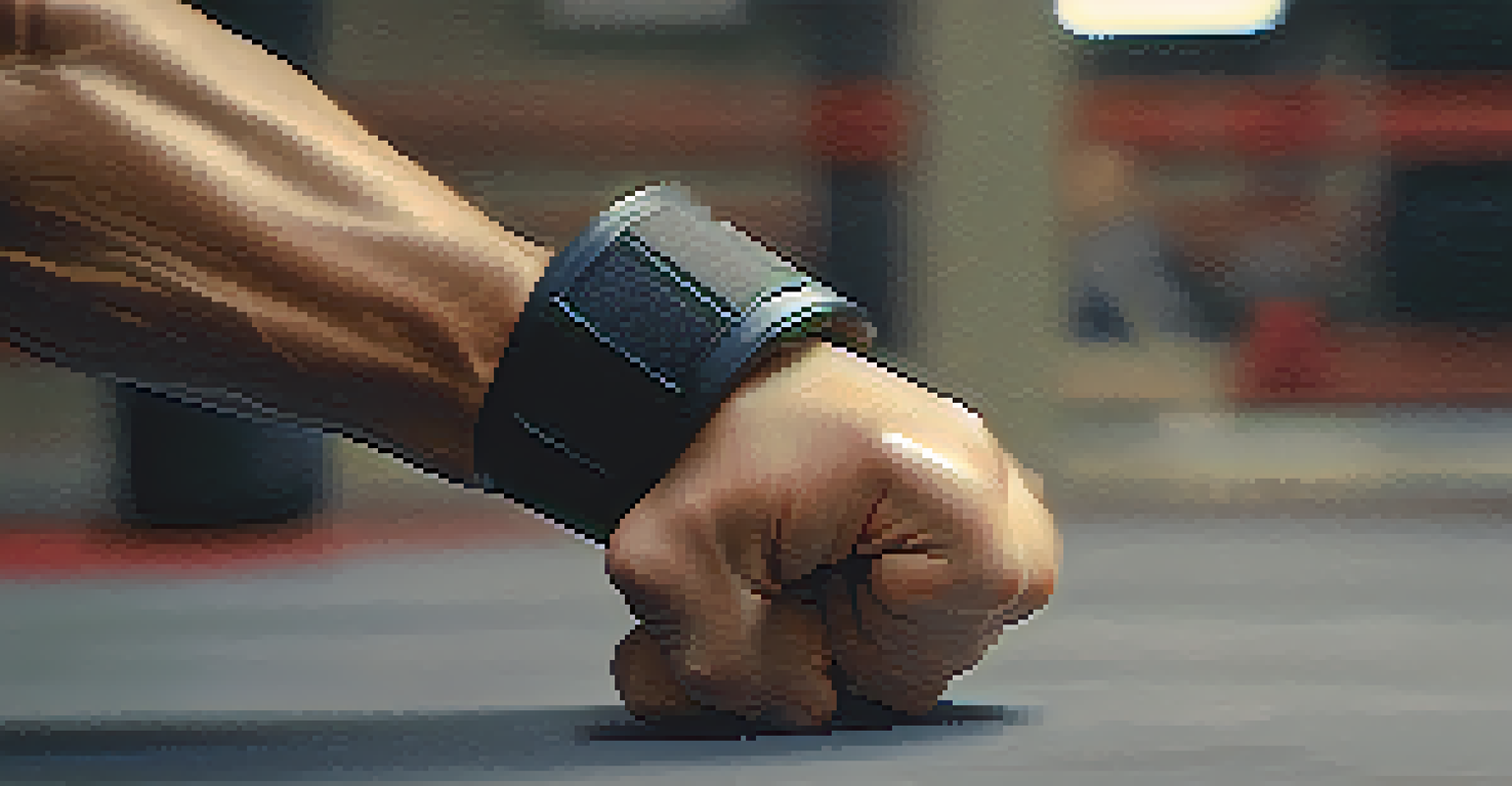Top Self Defense Strategies for Beginners to Know

Understanding the Importance of Self Defense Training
Self-defense training is crucial for everyone, not just those in dangerous professions. It empowers individuals to protect themselves in uncertain situations, giving them confidence and peace of mind. Learning these skills can be a transformative experience, as it encourages awareness and preparedness in daily life.
Self-defense is not just about the physical techniques but also about the mental preparedness and awareness of one's surroundings.
Many people might think self-defense is only for martial artists or those who are physically strong. However, it’s about understanding your surroundings and knowing how to react when threatened. By investing time in learning self-defense, you're taking an important step toward personal safety.
Moreover, self-defense training can also foster a sense of community. Joining a class often means meeting like-minded individuals who share similar goals, creating a supportive environment that enhances the learning experience.
Situational Awareness: The First Line of Defense
Situational awareness is about being conscious of your surroundings and understanding potential threats. This skill allows you to identify risky situations before they escalate and helps you make informed decisions about how to react. Simple practices, such as observing the people around you and noting exits in a building, can significantly enhance your safety.

Developing situational awareness involves training your mind to notice changes in your environment. For instance, if you notice someone following you or a group of people acting suspiciously, it’s essential to trust your instincts and take appropriate action. This could mean changing your route or seeking help from a nearby authority.
Self-Defense Empowers Everyone
Self-defense training is essential for personal safety, boosting confidence, and fostering awareness in daily life.
Regularly practicing situational awareness can make it second nature. By always being alert, you can often avoid dangerous situations altogether, making it a fundamental aspect of self-defense.
Basic Physical Techniques: Strikes and Escapes
Learning a few basic physical techniques can significantly enhance your ability to defend yourself. Simple strikes, like palm strikes or knee kicks, can be effective against an attacker and create an opportunity for escape. Practicing these moves can build muscle memory, ensuring you react instinctively when needed.
The best defense is a good awareness of the situation around you.
Equally important is mastering escape techniques. It’s often more beneficial to get away from a threat than to engage in a confrontation. Learning how to break free from holds or grab an arm can be invaluable, as it helps you regain control of the situation and prioritize your safety.
Remember, the goal of self-defense is not to win a fight but to escape unharmed. Even a few effective movements can make all the difference in a critical situation.
Using Your Voice: A Powerful Tool in Defense
Your voice is a powerful tool that should not be underestimated when it comes to self-defense. Yelling or shouting can attract attention, which may deter an attacker and help you gain support from bystanders. A loud, assertive voice can also give you a sense of confidence in a threatening situation.
Practicing how to project your voice can be beneficial. Whether it’s a simple 'Back off!' or 'Help!', using strong, clear commands can assert your presence and make it clear you are not a victim. This assertiveness can often dissuade an attacker who may not expect resistance.
Situational Awareness is Key
Being aware of your surroundings helps you recognize potential threats and make informed decisions to enhance your safety.
In addition to verbal commands, using your voice to create noise can alert others to your situation. Making a scene can be a strategic way to ensure you get the help you need quickly.
The Importance of Mental Preparedness
Mental preparedness is just as crucial as physical training in self-defense. Being mentally prepared means having a plan and knowing how you would react in various scenarios. Visualization techniques can help you picture yourself in a threatening situation and rehearse your response, making it easier to act when needed.
Moreover, staying calm under pressure can significantly affect your ability to respond effectively. Practicing mindfulness or breathing exercises can help you maintain composure, enabling you to think clearly and react appropriately. A clear mind can often be your best defense.
Finally, remember that mental preparedness also involves understanding your rights and the laws regarding self-defense in your area. Knowing what actions are permissible can help you feel more empowered and confident in your ability to protect yourself.
Choosing the Right Self Defense Class for You
When considering self-defense training, it's essential to find a class that fits your needs and comfort level. Researching different styles, such as Krav Maga, Brazilian Jiu-Jitsu, or traditional martial arts, can help you choose one that resonates with you. Each style has its unique approach, so understanding what appeals to you is key.
Visiting local classes can also give you a feel for the instructors and the atmosphere. A supportive and encouraging environment can make a significant difference in your learning experience. Don’t hesitate to ask about the class structure and the instructor's qualifications to ensure you're making an informed decision.
Regular Practice Builds Confidence
Consistent practice of self-defense techniques ensures they become second nature, preparing you for real-life situations.
Lastly, remember that self-defense is a personal journey. What works for one person may not work for another, so trust your instincts when selecting a class. The most important thing is to find a program that makes you feel empowered and ready to face challenges.
Practicing Regularly: Building Skills Over Time
Like any skill, self-defense techniques require regular practice to become second nature. Setting aside time each week to practice can reinforce what you've learned and boost your confidence. Whether it’s in a class or through solo drills, consistency is key to mastering self-defense.
Additionally, practicing with a partner can simulate real-life situations and enhance your learning. This allows you to experience different scenarios, making your training more dynamic and realistic. Plus, it can be more enjoyable and motivating to practice with someone else.

Finally, don’t forget to review and refresh your skills periodically. Self-defense is an ongoing journey, and staying engaged with your training can help you remain prepared and confident.